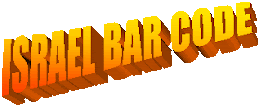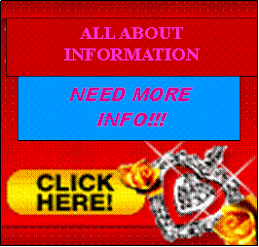3 ways to customize your resume to get the job that you want
While most resumes appear to look the same on the surface, there are key areas that differentiate well-written winning resumes from those that never make it into the hands of the hiring managers. To customize your resume for the job that you want, pay attention to the following three elements: resume style, career objective, and personal profile.
The layout and the style of your resume are as important as the information you are including about your experience and qualifications. The two most commonly used resume styles are chronological and functional. Chronological resume calls for listing your professional expertise in order, much like the name implies, and is used those with some to extensive professional experience. Functional resume showcases your experience by the type of qualifications you have, and is typically used by those lacking professional experience or those changing careers. While there are no set rules on determining the best resume style to use, it is important to keep in mind that the resume format can help or hurt your chances to put your best foot forward. You will want to pick the format that will best highlight your qualifications and your experience. Thus, it is important to understand the difference between the two, as well as research which format is more preferred in the field of your choice.
Career objective is very important to your resume. While there is an ongoing debate about the need for listing your objective on your resume, choosing to include this goal statement shows that you have given your professional growth some serious thought. Consider your career objective as the first impression you make on your potential employer. Make sure that your goals are specific and directional in terms of industry, position title, and future professional achievements. Most people make a mistake of including generic statements under their career objective. To be effective, your statement must tell a potential employer that you know what kind of job you want, what experience you have in order to get the position, and what you are willing do to become a successful professional with the company.
While your career objective tells your potential employer why you are applying for the job at their organization, your professional profile sells your expertise and convinces the employer that you are the best candidate for the job. Your professional summary/profile gives you the opportunity to differentiate yourself, and give your employer an insight into you. Two commonly made mistakes for this section of the resume are poor writing and inclusion of personal information. Note that your age, ethnicity, gender, religious affiliations, etc. do not make a difference on how you handle yourself as a business professional. Such information should never be included in a resume, or any job application materials (even when asked on a job application, such information is optional and is for demographics study only). Make sure this section is well written and error-free. Strong positive statements about your expertise will give a good first impression to your employer. Make sure to proofread the whole resume, with emphasis to this section, as it appears at the start of your resume. An effective personal statement must leave your employer with an impression that you are confident, credible, and professional.
Keep in mind – your resume is your sales pitch, demonstrating your qualifications and experience to your potential employer. Seize the opportunity to put your best foot forward and you will reap the rewards.
While most resumes appear to look the same on the surface, there are key areas that differentiate well-written winning resumes from those that never make it into the hands of the hiring managers. To customize your resume for the job that you want, pay attention to the following three elements: resume style, career objective, and personal profile.
The layout and the style of your resume are as important as the information you are including about your experience and qualifications. The two most commonly used resume styles are chronological and functional. Chronological resume calls for listing your professional expertise in order, much like the name implies, and is used those with some to extensive professional experience. Functional resume showcases your experience by the type of qualifications you have, and is typically used by those lacking professional experience or those changing careers. While there are no set rules on determining the best resume style to use, it is important to keep in mind that the resume format can help or hurt your chances to put your best foot forward. You will want to pick the format that will best highlight your qualifications and your experience. Thus, it is important to understand the difference between the two, as well as research which format is more preferred in the field of your choice.
Career objective is very important to your resume. While there is an ongoing debate about the need for listing your objective on your resume, choosing to include this goal statement shows that you have given your professional growth some serious thought. Consider your career objective as the first impression you make on your potential employer. Make sure that your goals are specific and directional in terms of industry, position title, and future professional achievements. Most people make a mistake of including generic statements under their career objective. To be effective, your statement must tell a potential employer that you know what kind of job you want, what experience you have in order to get the position, and what you are willing do to become a successful professional with the company.
While your career objective tells your potential employer why you are applying for the job at their organization, your professional profile sells your expertise and convinces the employer that you are the best candidate for the job. Your professional summary/profile gives you the opportunity to differentiate yourself, and give your employer an insight into you. Two commonly made mistakes for this section of the resume are poor writing and inclusion of personal information. Note that your age, ethnicity, gender, religious affiliations, etc. do not make a difference on how you handle yourself as a business professional. Such information should never be included in a resume, or any job application materials (even when asked on a job application, such information is optional and is for demographics study only). Make sure this section is well written and error-free. Strong positive statements about your expertise will give a good first impression to your employer. Make sure to proofread the whole resume, with emphasis to this section, as it appears at the start of your resume. An effective personal statement must leave your employer with an impression that you are confident, credible, and professional.
Keep in mind – your resume is your sales pitch, demonstrating your qualifications and experience to your potential employer. Seize the opportunity to put your best foot forward and you will reap the rewards.



No comments:
Post a Comment